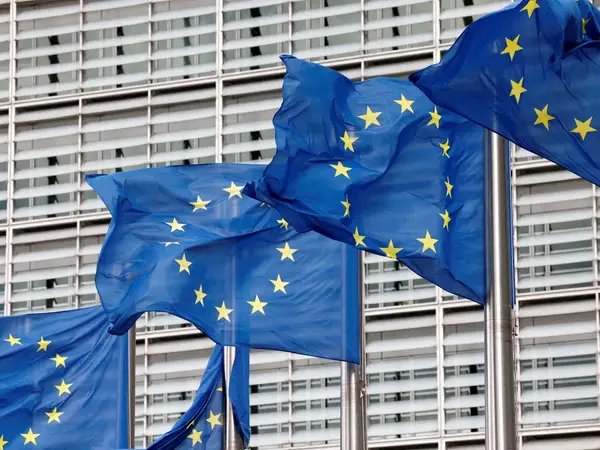The European Union sanctioned 29 Iranians and three entities Monday over what it said was human rights violations related to suppression of ongoing protests.
A statement issued in Brussels, where foreign ministers met, said the move was over “their role in the death of Mahsa Amini and the violent response to the recent demonstrations in Iran.”
Among the 29 named were Enayatollah Rafiei, Ali Enayatollah, Fatemeh Ghorban-Hosseini, and Parastou Safari, who the EU said were the “squad that arbitrarily arrested” Amini, who died September 16 after receiving fatal head blows in custody of Tehran ‘morality police.’
Also sanctioned, for “their role in the brutal repression of the recent protests,” were Iran’s Minister of Interior Ahmad Vahidi, Major-General Hossein Salami, commander of the Islamic Revolutionary Guards Corps (IRGC), and Brigadier General Major-General Kiumars Haydari, commander of the army’s ground forces. Added to the list were several provincial heads of the Iranian Law Enforcement Forces (LEF) and Basij, mainly in the majority-Sunni Kurdish and Baluchi regions where most unrest and violence have occurred.
Press TV, the English-language state television station, was designated “for producing and broadcasting the forced confessions of detainees,” along with Vahid Mohammad Naser Majid, head of the cyber-police, and the Bonyad-eh Taavon-eh Basij, a cooperative foundation linked to the Basij.
The measures involve a ban on entering the EU, the seizure of any assets in the EU, and a prohibition on EU citizens or businesses making funds available to those designated. The EU statement said it had now listed 126 people and 11 entities over human rights violations in Iran.
The “use of force against peaceful protestors” was “unjustifiable and unacceptable,” the EU said, as “people in Iran, as anywhere else, have the right to peacefully protest…” The statement called for the death of Amini to be “investigated in an independent and transparent manner and any[one] proved responsible for her death…held accountable.”
‘A clear message’
Germany’s Foreign Minister Annalena Baerbock told reporters that the new sanctions would “send a clear message to those who think they can suppress, intimidate and kill their own people without consequences.”
EU-Iran relations have soured in recent months, with European leaders vocal both over protests in Iran and Russia’s use of Iranian-made drones in Ukraine. French President Monday spoke Monday of a ‘new framework’ for regional security given the continuing failure of 18-month talks to revive the 2015 Iran nuclear agreement, the JCPOA (Joint Comprehensive Plan of Action).
As a further sign of the ‘E3’ signatories of the JCPOA – France, Germany, and the United Kingdom – moving closer to the US, the E3 is preparing a second resolution, following one in June, at this week’s quarterly board of the International Atomic Energy Agency (IAEA) condemning Iran over what the IAEA has said is a lack of cooperation with the agency.
Iran’s foreign affairs spokesman Nasser Kanaani said Monday the US and E3 were “again trying to use the agency politically and turn it into a vehicle for political pressure on the Islamic Republic of Iran.” Kanaani pointed to the scheduled visit this month of IAEA officials to discuss the outstanding issue of uranium traces found in sites linked to Tehran’s pre-2003 nuclear work, but US State Department Spokesman Ned Price last week said Iran was “foot-dragging.”
The UK also Monday announced new sanctions against Iran over “violent repression of protests.” Those named included cyber-police chief Majid, and the Communications Minister Issa Zarepour.
